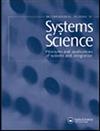基于离散时间事件的非线性模型预测控制的非周期性间歇采样
IF 4.6
4区 计算机科学
Q1 AUTOMATION & CONTROL SYSTEMS
引用次数: 0
摘要
本文在受外部干扰的非线性离散系统的基于事件的模型预测控制中设计了一种非周期性间歇采样方法。所提出的非周期性间歇采样...本文章由计算机程序翻译,如有差异,请以英文原文为准。
Aperiodic intermittent sampling for nonlinear discrete-time event-based model predictive control
In this article, an aperiodic intermittent sampling method is designed in event-based model predictive control for nonlinear discrete systems subject to external disturbances. The proposed aperiodi...
求助全文
通过发布文献求助,成功后即可免费获取论文全文。
去求助
来源期刊

International Journal of Systems Science
工程技术-计算机:理论方法
CiteScore
8.00
自引率
9.30%
发文量
164
审稿时长
7.7 months
期刊介绍:
International Journal of Systems Science (IJSS) is a world leading journal dedicated to publishing high quality, rigorously reviewed, original papers that contribute to the methodology and practice in emerging systems engineering themes of intelligence, autonomy and complexity.
Modern systems are becoming more and more complex and sophisticated in their demand for performance, reliability and increasing autonomy. Historically, highly analytic and numeric-based methods have sufficed, frequently simplifying the problem to allow analytical tractability. Many manufactured and natural systems (biological, ecological and socio-economic) cannot be adequately represented or analyzed without requiring multiple interacting and interconnected frameworks and a common information-processing framework. A wide range of new theories, methodologies and techniques are required to ‘enable’ such systems, and thus engineering and integration to deal with these demands.
IJSS therefore encourages original submissions in these areas, with special focus on papers that are strongly novel as well as not being overly applied. Proposals for special issues in cutting-edge areas of systems science are encouraged, and should be discussed with the Editor-in-Chief.
Papers that cover those topics related to operations management and logistics will not be accepted for publication in IJSS. Instead they should be submitted directly to sister journal International Journal of Systems Science: Operations & Logistics.
Queries regarding submissions can be made by contacting the Editor-in-Chief, whose decision is final.
 求助内容:
求助内容: 应助结果提醒方式:
应助结果提醒方式:


